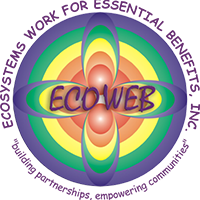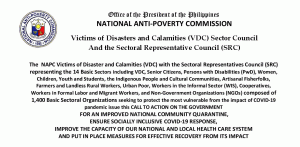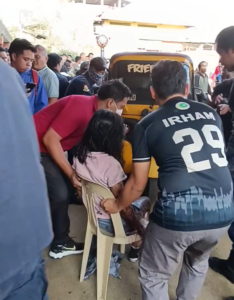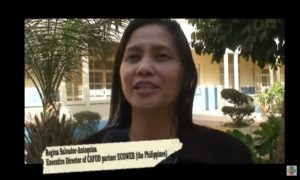ECOWEB has been passionate in contributing to strengthening local capacities with the community’s strategies in terms of disaster risk reduction.
The survivor and community-led response (sclr) approach sees the importance of crafting a framework from multi-hazard risk assessment and analysis.
Some of ECOWEB’s footprints in this advocacy are the successful programs implemented in Eastern Samar, and 2 municipalities in Lanao Del Norte – Salvador and Munai.
Both programs highlight the importance of Community-based Disaster Risk Reduction and Management (CBDRRM). These areas have histories of disasters which people previously have no enough idea on how to counter and prevent themselves from being distressed.
The partnership built with the local government units create trust and the sharing of values toward project implementation and partnerships. Both sectors ensure that any transaction made attains its purpose of complimenting community’s capacity.
ECOWEB ensures that all programs in the field are grounded with the principle of leadership, management and accountability.
In Eastern Samar, the program titled, “Improved Community-based Disaster Risk Reduction in Eastern Samar” help barangays to craft a comprehensive capacity building program which will lessen community’s exposure and risk to disasters.
Thus, the project also aimed to enable local government units of the province to effectively implement an ecosystem and community-based DRR and Climate Change Adaptation (CCA).
ECOWEB together with the Barangay Disaster Risk Reduction and Management Committee (BDRRMC) of barangay Lininding, Municipality of Munai, Lanao del Norte, facilitated and implemented an activity title “Disaster Risk Reduction and Climate Change Information and Education Campaign in the community and schools including Madrasahs in Munai Barangays (2020)”.
The activity aims to strengthen the BDRRMC contingency plan among all barangays, and to define individual role in disaster preparedness.
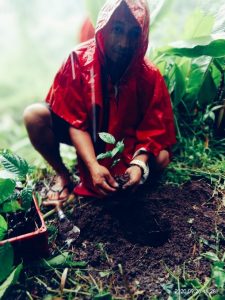 A tree-planting activity was also launched participated by a total of 124 volunteers. Volunteers were from the six zones of the barangay where each of them received 100 seedlings to be planted on high-risk and hazard-prone landscapes.
A tree-planting activity was also launched participated by a total of 124 volunteers. Volunteers were from the six zones of the barangay where each of them received 100 seedlings to be planted on high-risk and hazard-prone landscapes.
Gani Abbas, one of the volunteers in the activity expressed that he wanted to plant in Zone 6 where it is two-kilometers from the barangay hall to easily see the progress of their planted efforts.
“This tree planting is one of our preventive measures against natural disasters especially that our barangay is prone to flood and landslide. These trees will save people from devastation and I hope our actions will really make a change.” Abbas said.
Meanwhile, in the barangays of Bacayawan and Lininding, Municipality of Munai, Lanao del Norte, ECOWEB conducted the BDRRMC volunteers training on the conduct of response to typhoon, flood, landslide, earthquake and mainstreaming COVID-19 information campaign.
It was participated by 77 volunteers in both barangays. The training aims to have the participants understand the significance and essence of being a volunteer and a leader in their respective purok.
It also primarily defines their role as BDRRMC officers and volunteers. They have learned the basic approaches, techniques and methodologies in conducting Community-Based DRRM trainings in line with the cultural context of the Barangay.
With the recent disastrous events that hit the barangay, the activity also led them to be familiar with the different terminologies of DRRM and climate change, mainstream different process and practice through sclr approach, and to review and update the Barangay Development and BDRRM Plan which will also integrate the mainstreaming of Islamic context in the field of DRR and CCA Plans for the barangay.
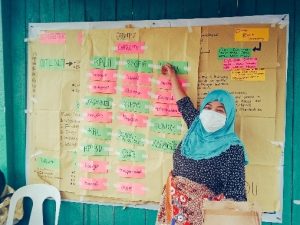

The activities implemented in Vinta-affected communities in Lanao del Norte municipalities are supported through the partnership of ECOWEB with AWO International and Aktion Deutschland Hilft.
While the world faces this dilemma of pandemic, ECOWEB guarantees that communities are on the forefront of keeping themselves safe through the lens of capacitation and empowerment through activities that build up resiliency and DRR while attaining community-led responses. These trying times need desperate call for good governance and effective leadership.

